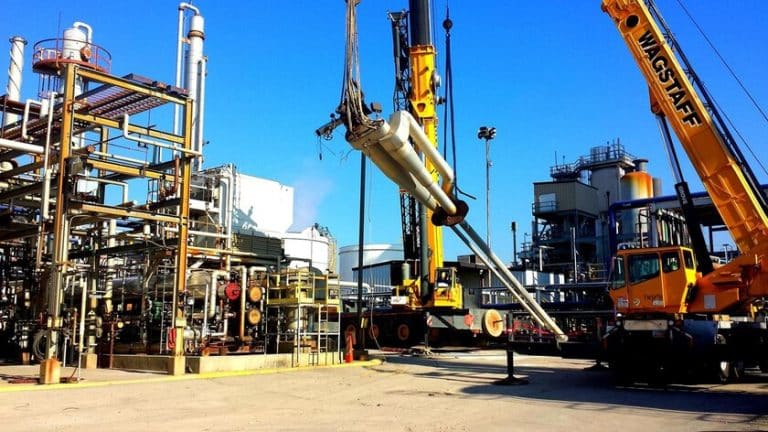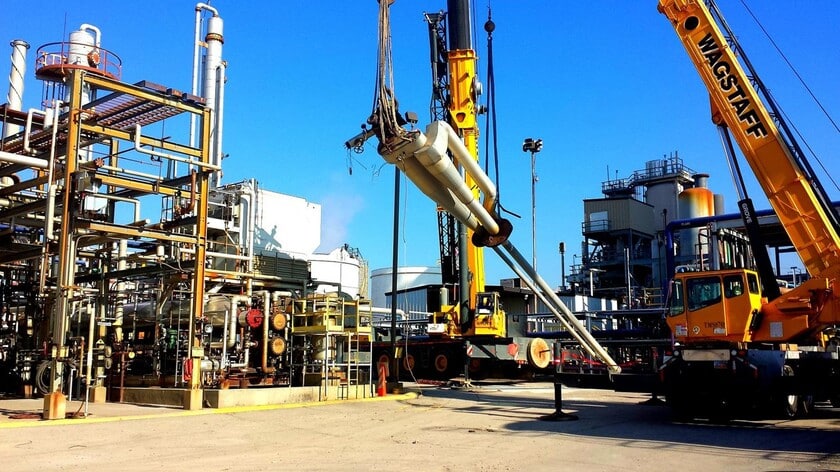
Biden administration to resume leasing for oil and gas drilling on federal lands
Joe Biden was elected president in November 2020, promising to “transition from oil”, limit shale drilling, enact new climate laws and reduce America’s reliance on fossil fuels as a presidential candidate. The United States’ oil and gas industry was expected to be left behind.
However, it seems that after just over a year that is no longer the case. Russia’s invasion of Ukraine heightens fears of global oil and gas shortages, and western nations rush for new supplies. The prognosis for American fossil fuels and how the White House views them are undergoing a shift.
Since Biden took office, petrol prices have climbed by more than 70%, and as a result, an administration that promised to prioritize the fight against climate change is now fighting a short-term battle to cheapen fossil fuels.
The president, who campaigned on a promise that there would be “no more drilling” on federal lands if he were elected, signed an executive order in January 2021 that froze new lease sales on 245 million acres of public lands awaiting a review.
Nevertheless, the administration will resume oil and gas leasing as pressure is increasing to lower petrol prices, but with a major reduction in the number of acres offered compared to what the industry had asked for and an increase in the royalties companies must pay to drill.
Around 144,000 acres will be placed up for sale, the interior department said on the 15th of April, with a royalty rate of 18.75 percent, up from the previous 12.5 rate.
“Today, we begin to reset how and what we consider to be the highest and best use of Americans’ resources for the benefit of all current and future generations,” said Deb Haaland, interior secretary.
The action comes as President Joe Biden faces mounting political pressure over rising fuel prices, which have fueled inflationary pressures.
According to industry analysts, it will take months if not years for new drilling on federal land to provide greater supply so it is unlikely that the new output will make a big difference in lowering oil and gas prices. But, as Amrita Sen, senior oil analyst at Energy Aspects, says, “The midterm elections are the driving force behind US energy policy right now”. Everything is an effort “to be seen to be doing something,” Sen says.
Administration officials and advisers say Biden’s priority remains climate and clean energy. But either way, he must first deal with the current global supply crisis.
“You can’t have an energy transition if you’re in the middle of an energy crisis,” argues Jason Bordoff, dean of Columbia University’s climate school and a former Obama White House adviser “To mobilize public support for the actions we need to take to reduce oil and gas use and dependency, you need to make sure that people are not panicked about their energy bills today.”
Others understand the severity of the price crisis but argue that remedies that increase fossil fuel supplies today risk worsening the problem later.
“For decades most policymakers and politicians have thought that they’ll deal with climate change in a couple of months, in a couple of years, later, down the road. And they never get to it,” says Leah Stokes, an expert on climate policy and professor at the University of California, Santa Barbara. “It’s just sometimes easier for people to turn back to the answers they already know.”
Sources:
Author: Clarissa Colella
Biden administration to resume leasing for oil and gas drilling on federal lands
Joe Biden was elected president in November 2020, promising to “transition from oil”, limit shale drilling, enact new climate laws and reduce America’s reliance on fossil fuels as a presidential candidate. The United States’ oil and gas industry was expected to be left behind.
However, it seems that after just over a year that is no longer the case. Russia’s invasion of Ukraine heightens fears of global oil and gas shortages, and western nations rush for new supplies. The prognosis for American fossil fuels and how the White House views them are undergoing a shift.
Since Biden took office, petrol prices have climbed by more than 70%, and as a result, an administration that promised to prioritize the fight against climate change is now fighting a short-term battle to cheapen fossil fuels.
The president, who campaigned on a promise that there would be “no more drilling” on federal lands if he were elected, signed an executive order in January 2021 that froze new lease sales on 245 million acres of public lands awaiting a review.
Nevertheless, the administration will resume oil and gas leasing as pressure is increasing to lower petrol prices, but with a major reduction in the number of acres offered compared to what the industry had asked for and an increase in the royalties companies must pay to drill.
Around 144,000 acres will be placed up for sale, the interior department said on the 15th of April, with a royalty rate of 18.75 percent, up from the previous 12.5 rate.
“Today, we begin to reset how and what we consider to be the highest and best use of Americans’ resources for the benefit of all current and future generations,” said Deb Haaland, interior secretary.
The action comes as President Joe Biden faces mounting political pressure over rising fuel prices, which have fueled inflationary pressures.
According to industry analysts, it will take months if not years for new drilling on federal land to provide greater supply so it is unlikely that the new output will make a big difference in lowering oil and gas prices. But, as Amrita Sen, senior oil analyst at Energy Aspects, says, “The midterm elections are the driving force behind US energy policy right now”. Everything is an effort “to be seen to be doing something,” Sen says.
Administration officials and advisers say Biden’s priority remains climate and clean energy. But either way, he must first deal with the current global supply crisis.
“You can’t have an energy transition if you’re in the middle of an energy crisis,” argues Jason Bordoff, dean of Columbia University’s climate school and a former Obama White House adviser “To mobilize public support for the actions we need to take to reduce oil and gas use and dependency, you need to make sure that people are not panicked about their energy bills today.”
Others understand the severity of the price crisis but argue that remedies that increase fossil fuel supplies today risk worsening the problem later.
“For decades most policymakers and politicians have thought that they’ll deal with climate change in a couple of months, in a couple of years, later, down the road. And they never get to it,” says Leah Stokes, an expert on climate policy and professor at the University of California, Santa Barbara. “It’s just sometimes easier for people to turn back to the answers they already know.”
Sources:
Author: Clarissa Colella
RELATED
Regulatory Developments in ESG Reporting and Their Implications for Businesses
The focus on Environmental, Social, and Governance (ESG) factors has surged, leading to significant regulatory changes worldwide. Key developments include the EU’s Corporate Sustainability Reporting Directive (CSRD), the US SEC’s...
Read MoreThe Earthshot Prize 2022
The Earthshot Prize 2022 The Earthshot prize is an award given to five winners that created some projects that could help our planet face some of the most important challenges...
Read More

